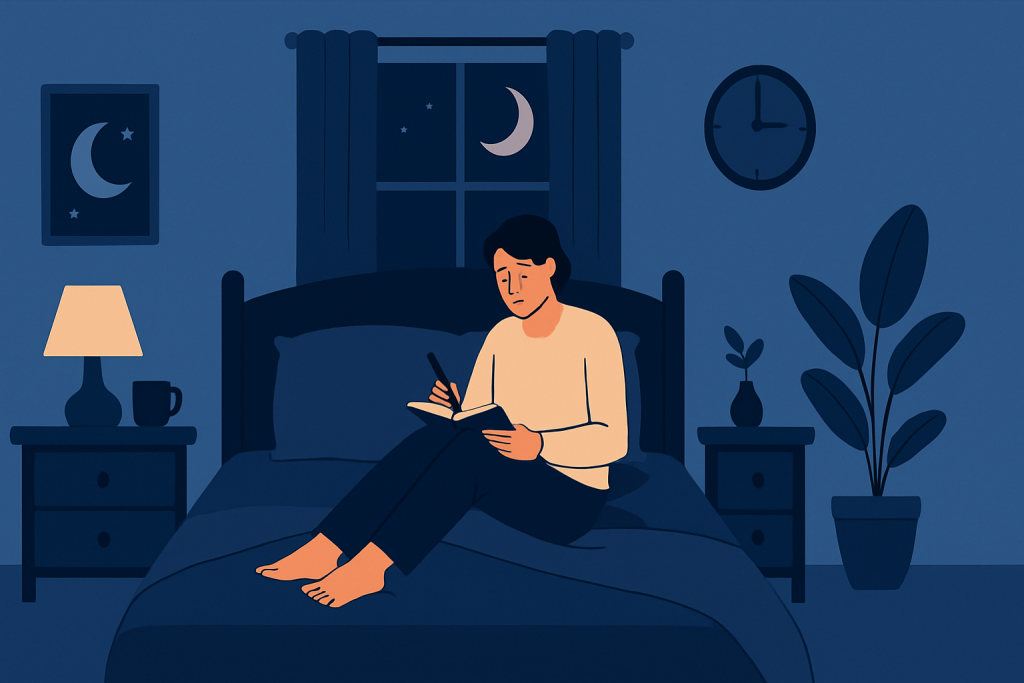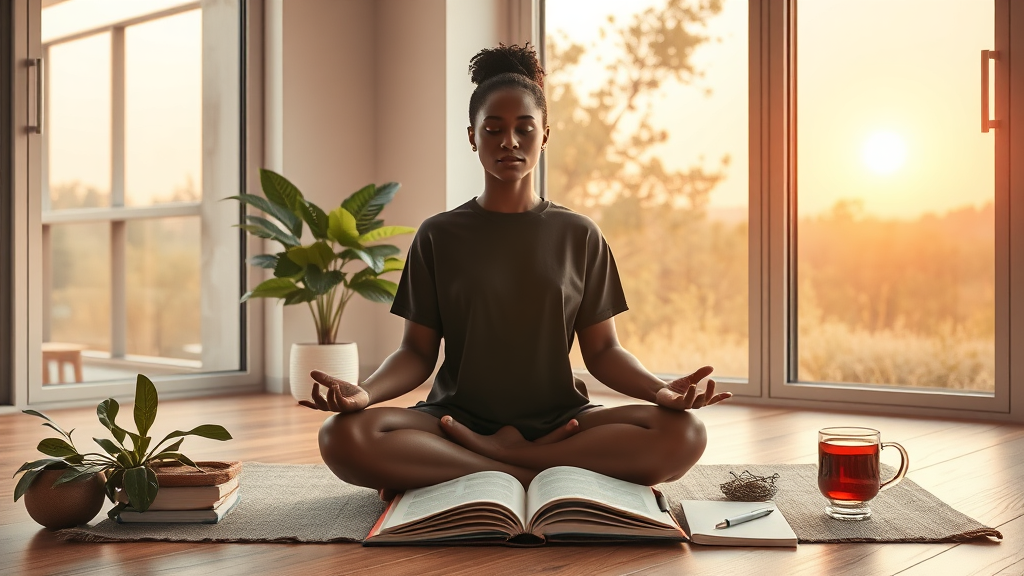
The Power of a Night Routine
We often hear about the importance of a strong morning routine to kick-start the day. But what about the evening? The truth is, how you end your day is just as important—if not more—when it comes to overall wellness. A calming and consistent night routine for sleep can help you unwind, reduce stress, and improve the quality of your sleep, leading to better physical and mental health.
Let’s explore how to build the perfect night routine for deep sleep—one that’s easy to implement, enjoyable to follow, and highly effective.
Why Deep Sleep Matters
Before diving into the routine itself, it’s essential to understand what deep sleep is and why it’s so crucial.
Deep sleep, also known as slow-wave sleep (SWS), is the most restorative stage of the sleep cycle. During this phase:
- Your body repairs muscles and tissues
- Your immune system is strengthened
- Your brain consolidates memories and processes emotions
Without enough deep sleep, you’re likely to wake up feeling groggy, irritable, and mentally foggy. Long-term sleep deprivation can even contribute to chronic health problems like heart disease, obesity, and depression.
A proper night routine sets the stage for entering and staying in this deep, restorative phase.
Step 1: Set a Consistent Sleep Schedule
Your body thrives on routine. Going to bed and waking up at the same time every day—even on weekends—helps regulate your circadian rhythm, or internal clock.
Tips:
- Determine the amount of sleep you need (usually 7–9 hours for adults).
- Work backward from your wake-up time to set your ideal bedtime.
- Use an alarm not just for waking up, but also for going to bed.
The more consistent you are, the easier it becomes for your body to know when it’s time to wind down.
Step 2: Limit Blue Light Exposure
Blue light from screens (phones, tablets, TVs, computers) can suppress melatonin production, a hormone essential for sleep.
Follow our social media to get an daily update!
What to do:
- Turn off all screens at least 1 hour before bed.
- If that’s not realistic, use blue light filters or “night mode” on devices.
- Invest in blue light blocking glasses if you must use screens late in the evening.
Replacing screen time with calming activities—like reading a paperback or journaling—helps signal to your brain that it’s time to sleep.
Step 3: Create a Calming Environment
Your bedroom should feel like a sanctuary. A cool, dark, and quiet environment is ideal for promoting deep sleep.
Makeover your space:
- Keep the room temperature between 60–67°F (15–19°C)
- Use blackout curtains or a sleep mask
- Use a white noise machine or earplugs to block disruptive sounds
- Add calming scents like lavender or chamomile via essential oils or pillow sprays
Even small changes in your sleep environment can have a big impact on your sleep quality.
Step 4: Wind Down with a Relaxing Ritual
Establishing a bedtime ritual helps signal to your brain that sleep is coming. Choose activities that calm the mind and relax the body.
Ideas for a nightly wind-down:
- Take a warm shower or bath
- Do light stretches or yoga
- Practice deep breathing or guided meditation
- Listen to soothing music or a sleep podcast
Avoid anything too stimulating—such as intense exercise, heated debates, or horror movies—at least 1–2 hours before bedtime.
Step 5: Limit Food and Drink
Late-night snacking and drinking can disrupt your sleep, especially if you’re consuming caffeine, alcohol, or heavy meals.
Guidelines:
- Avoid caffeine at least 6 hours before bed
- Limit alcohol, as it disrupts REM sleep
- Finish dinner at least 2–3 hours before bed
- If you’re hungry before bed, opt for a light snack like a banana, almonds, or yogurt
Sticking to sleep-friendly nutrition patterns can help your digestive system wind down too.
Step 6: Journal Your Thoughts
If racing thoughts or stress keep you awake, journaling can help clear your mind. It’s like a “brain dump” that frees you from mental clutter.
Try this simple journaling technique:
- Write down 3 things you’re grateful for
- Reflect on the highlights (or challenges) of the day
- List your top priorities or goals for tomorrow
This not only helps process emotions but also reduces anxiety and promotes mental clarity—making it easier to fall asleep peacefully.
Step 7: Avoid Sleep Saboteurs
Some habits might seem harmless but can significantly disrupt your sleep cycle.
Common culprits include:
- Taking long naps during the day
- Drinking too much water right before bed (leading to bathroom trips)
- Working in bed (confusing your brain about its purpose)
- Using your phone in bed, even just for scrolling
Being mindful of these behaviors can drastically improve your ability to enter and stay in deep sleep.
Step 8: Practice Gratitude or Mindfulness
Ending your day on a positive and peaceful note can prepare your mind for restful sleep.
Mindfulness before sleep:
- Sit or lie down in a comfortable position
- Focus on your breath, letting each inhale and exhale be slow and deliberate
- If thoughts come up, observe them without judgment and return to your breath
This practice not only calms the nervous system but can also improve sleep onset and depth over time.
A Sample Night Routine for Deep Sleep
Here’s a sample night routine you can tweak to fit your lifestyle:
| Time | Activity |
|---|---|
| 8:30 PM | Light snack or herbal tea (e.g., chamomile) |
| 9:00 PM | Warm shower and skincare routine |
| 9:30 PM | Journaling or light reading (no screens) |
| 10:00 PM | Bedtime yoga or breathing exercises |
| 10:15 PM | Lights out, focus on breath or gratitude |
Repeat this routine consistently, and your body will begin to associate these cues with deep, restful sleep.
Final Thoughts
A good night’s sleep starts long before your head hits the pillow. By creating a personalized night routine for sleep, you’re not just improving your sleep—you’re investing in your long-term health, mood, and productivity.
Start small. Pick one or two habits from this guide and build from there. The key is consistency and tuning into what your body responds to best. Before you know it, you’ll be drifting into dreamland effortlessly—and waking up refreshed and ready for whatever the day brings.



